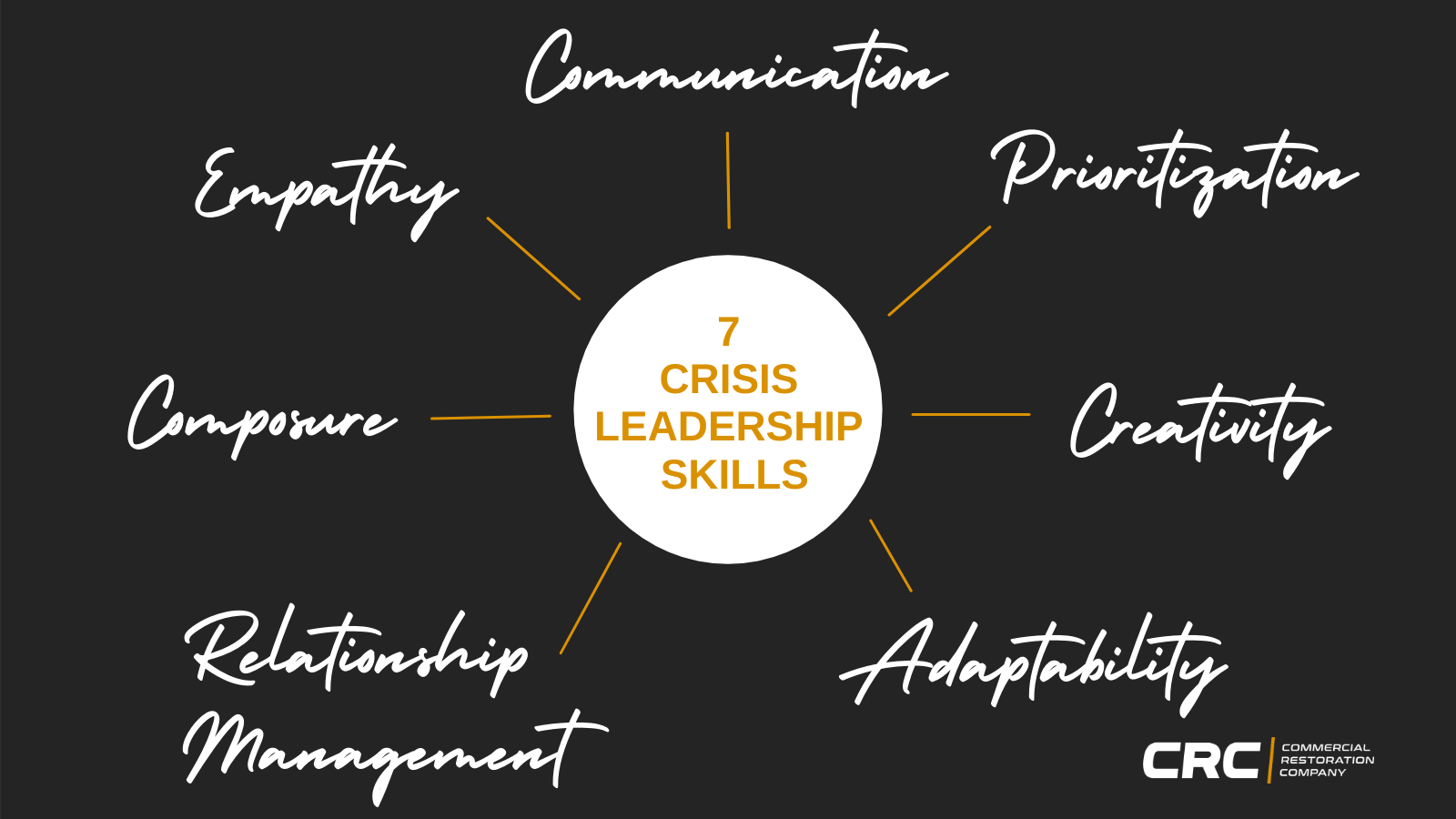How Water Heaters Cause Water Damage
Appliances have a limited lifespan and can eventually result in water damage, especially water heaters. It is crucial to be able to identify...
2 min read
Sarah Chadwick
March 3, 2022

When a crisis hits, the role of a leader becomes pivotal. The uncertainty and anxiety that crises bring make it crucial for leaders to possess a specific set of skills to keep their teams stable and steer them towards successful outcomes. In this blog, we will explore the significance of effective leadership during a crisis and delve into seven critical skills that every leader should possess. We will also discuss how these skills can help manage stress within the team and provide examples of successful leaders who have demonstrated these qualities.
Communication: Effective communication stands as the cornerstone of leadership during crises. Leaders must convey information clearly, transparently, and consistently. Timely updates, active listening, and open dialogue establish trust and alleviate uncertainty, reducing stress within the team.
Prioritization: During a crisis, leaders must assess and prioritize tasks effectively. They need to identify critical issues, allocate resources wisely, and ensure the team focuses on the most impactful actions. By setting clear priorities, leaders help their teams remain focused and minimize distractions that can lead to heightened stress levels.
Creativity: In crisis situations, leaders must think outside the box and encourage innovative solutions. Creativity enables leaders to find alternatives, adapt quickly to changing circumstances, and address unforeseen challenges. It injects positivity into the team, fostering resilience and reducing stress through the exploration of new possibilities.
Adaptability: Crises demand leaders who can swiftly adapt to evolving circumstances. Flexibility and agility in decision-making are vital qualities. By embracing change, leaders empower their teams to navigate uncertainty with confidence, thus diminishing stress levels and fostering a sense of stability.
Relationship Management: Building and maintaining strong relationships within the team and with external stakeholders is crucial during crises. Leaders who prioritize relationship management foster trust, collaboration, and cooperation. These connections act as pillars of support, reducing stress by providing a network of assistance and collective problem-solving.
Composure: In the face of crisis, leaders must display composure and maintain a calm demeanor. Composure sets the tone for the team, instilling confidence and promoting rational decision-making. Leaders who remain composed inspire their teams to stay focused and navigate stress with resilience.

These skills are not limited to crisis situations. Effective leaders understand that practicing these skills in everyday scenarios fosters a positive work environment, promotes employee engagement, and strengthens team dynamics. By consistently honing these skills, leaders build a foundation of trust, resilience, and adaptability, which proves invaluable during challenging times.
In times of crisis, effective leadership plays a pivotal role in navigating uncertainty and ensuring successful outcomes. By possessing and developing essential skills such as communication, prioritization, creativity, adaptability, relationship management, composure, and empathy, leaders can guide their teams through stressful situations with resilience and unity. These skills are equally crucial in non-crisis situations, as they foster positive work environments and enable leaders to build strong, high-performing teams that thrive in any circumstance. By honing these skills, leaders can inspire their teams to achieve exceptional results and create a culture of success, even beyond moments of crisis. Remember, effective leadership is an ongoing journey of growth and development, and investing in these skills will undoubtedly yield long-term benefits for both leaders and their organizations.
.jpg)
Appliances have a limited lifespan and can eventually result in water damage, especially water heaters. It is crucial to be able to identify...
.jpg)
Mold issues in commercial buildings can have far-reaching consequences, impacting both the well-being of individuals and the integrity of the...

Spring thaw varies depending on your location, but as winter fades and warmer temperatures take over, commercial properties face new challenges. Snow...